My Comedy Career: Joz Norris
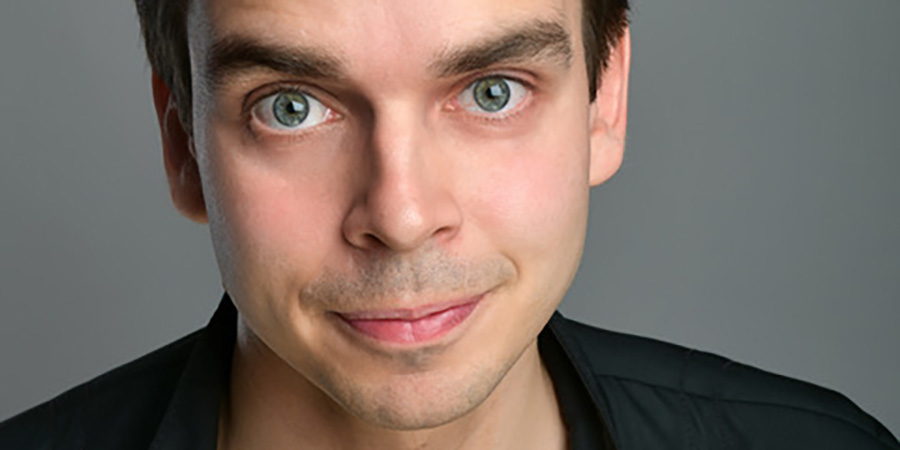
Joz Norris has been writing and performing comedy on the stage, online, on screens and on the wireless. He won Best Show via the Comedians' Choice Awards at the Edinburgh Fringe in 2019. In this in-depth interview he gives some insight into how he works.
Tell us what you do in your job.
I'm a writer, comic and actor. Ordinarily, the only constant thing I work on all year round is that, every year, I make a new hour-long comedy show which I take to the Fringe.
I do that as much because it's how I organise my thoughts, as for any work-related purpose. Putting the feelings and ideas that make up each year onstage, as a place to process them and understand them and turn them into something imaginative and creative, is just what I do with my life anyway, but over several years of doing it, of course the Fringe becomes a sort of 'shop window' for the sort of things you want to do and make, so it ends up generating the other work that makes up the rest of my year.
So I end up doing a lot of very varied other stuff in comedy. Sometimes that's collaborating with other comics on big group projects, such as with Weirdos Comedy for Adam Larter and Tony Law's on-ice spectacular The Battle For Icetopia in 2017. Sometimes it's being a more passive part of something bigger, like playing various roles in short films or sketches for TV. And sometimes it involves developing and producing my own scripted stuff, whether that's script pitches, sitcom pilot tasters, radio projects and so on. So my shows are the things my brain is busy doing anyway, and then they tend to bring in other opportunities that feel a bit more like 'actual work', if that makes sense.
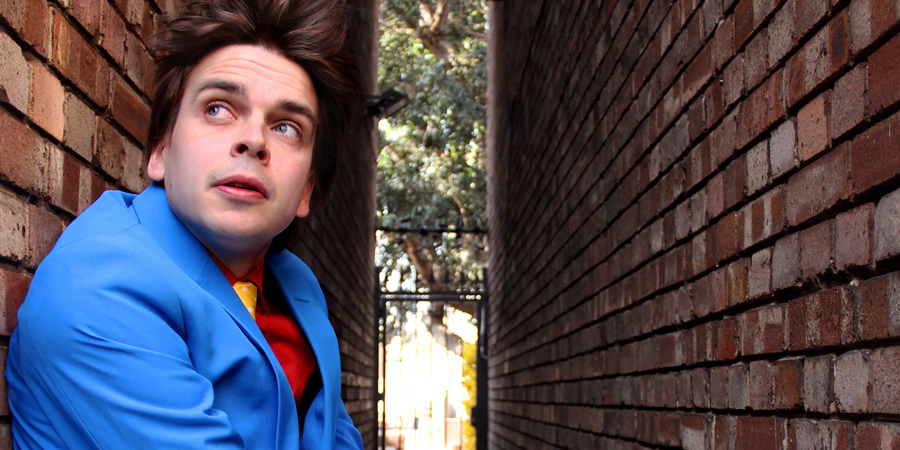
I'd say the big misconception from people outside the industry is that trading off security and stability, in favour of making a living from being silly, must be an unadulteratedly fun and brilliant way to live your life. It's certainly not a dreadful slog, and I constantly count myself very lucky to get to indulge in nonsense for a living, but you do lose a lot of peace-of-mind and stability in order to do this job.
The fun of being silly is constantly balanced out by the worry of where the next project might come from. It probably involves just as much stress and worry and anxiety as any more conventional job, but it also involves a great deal of stupidity, and that makes it quite fun.
How did you first get involved in the comedy industry?
I grew up knowing I was going to end up working in the creative industries in some way, because my dad was a pianist and my mum was a singer and artist, so going into the arts never felt like a radical brainwave moment, it was just where I always knew I was headed.
In my teens I thought I might end up being a novelist or a playwright or a dramatic actor. Then when I went to uni I happened to meet Jon Brittain, who ran the student comedy club along with John Kearns and Tom Moran. He liked some comedy scripts I'd written for the student radio station and said maybe I should come down and do a gig, and as soon as I tried it I knew that was the direction I was going to go in.
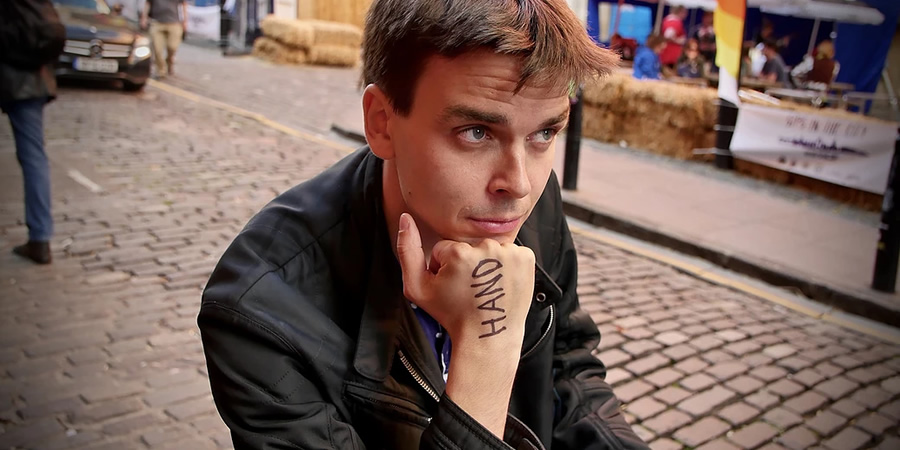
After a few years of building up my confidence doing student gigs while I was in Norwich, I eventually moved to London to try and do it properly. I think for a while I tried to be everything to everyone, and to put as much effort into trying to be a club comic as I did into trying to make a Fringe show and into writing scripts for online sketches and so on. It was only after a few years of performing and meeting other people with similar senses of humour that I started to hone in on the sorts of comedy I was really good at, and the sorts of work I really wanted to do, and once I'd figured that out it all started going a lot better for me.
What key skills do you need to be able to do your job well?
I really think the key things are being interesting and being nice. You can still get ahead in comedy if you're hopeless at lots of practical skills or organisational skills, because the industry is full of agents and producers and other people who can help with that side of thing if you're a bit of a chaotic, unpractical person.
And you can even be bad at following through on your ideas, because other people can help with that too.
But if your ideas aren't interesting then nobody's going to want to help you develop them; and if you're not nice and pleasant to work with, then nobody's going to be willing to go through the slog of helping you develop them.
As long as you're a friendly person with good ideas, I think you'll do ok.
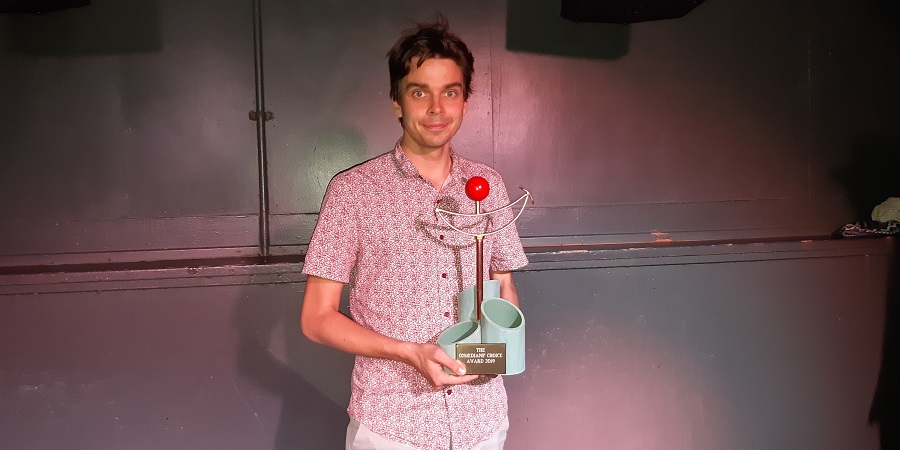
What has been your biggest career achievement to date?
Last year I made a show called Joz Norris Is Dead. Long Live Mr Fruit Salad. which, against all my expectations, became the most successful thing I've ever made.
I had taken a year off from the Fringe in 2018 to process some stuff in my personal life, and wanted to come back in 2019 with a show I was really proud of, that felt like I'd made good use of the time off; but I didn't anticipate it becoming a big hit.
It sold out and transferred to an extended Soho Theatre run and won an award and was nominated for a couple of others, and apparently came close to being nominated for the Edinburgh Comedy Award that year.
It's opened up plenty more work opportunities for me with various bits of radio and development work coming through that wouldn't have happened if it weren't for the success of that show. The thing it taught me is that the biggest successes come to you, not as a result of you seeking them out or aiming for them, they come as a result of you honestly and authentically trying to fulfil the small goals you set only for yourself.
I told myself to make a show that processed the personal hurts of 2018 and turned them into something celebratory and silly and felt like something I could be proud to return to the Fringe with; that was the goal. And somehow, in fulfilling that goal, I made something that spoke to other people as well, but it wasn't something I saw coming.
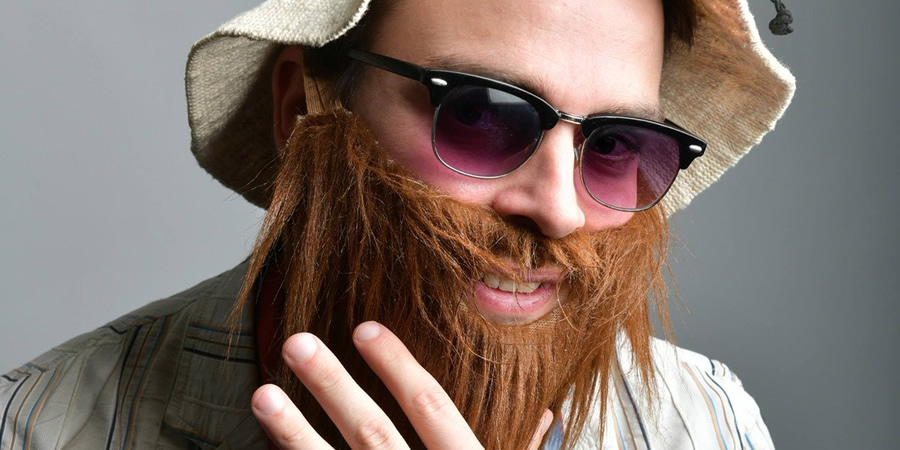
And what has been the biggest challenge/disappointment?
In early 2018 I tried to make a show called 60 Minutes After Feeling Sad which was supposed to be a gently comic theatrical monologue about the hour immediately after somebody's mood starts to dip.
I was a bit exhausted by stand-up at the time and wanted to do something different, and followed some advice to explore a more theatrical space instead. I had some amazing collaborators on that show who helped me identify some good ideas within it, and all the good elements of the show came from those people who helped me with it, but the show as a whole felt self-indulgent and confused.
I had always made shows that prioritised fun, and suddenly I'd made something that made the audience sad more than anything else, all under this quite self-important banner of trying to do something innovative or different. I felt quite embarrassed by it and didn't perform again for a long time.
I overcame it by reminding myself that the reason I made that show was because there was something about my previous work that was starting to feel a bit flat and played-out to me, and that maybe the correct way to address that was to inject some more innovation and freshness into what I was doing before, to remind myself how to enjoy it, rather than just abandoning ship and trying to make something that felt comparatively joyless instead. And that train of thought led to the Mr Fruit Salad show, so that disappointment played its part, ultimately.
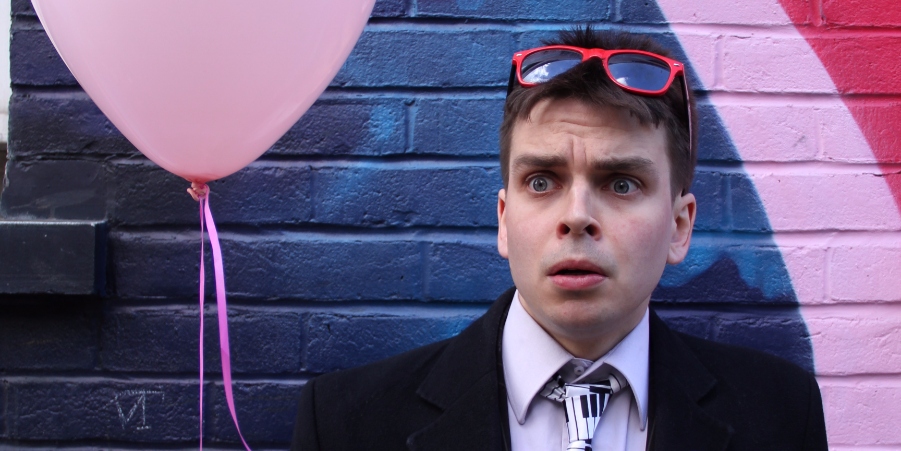
Talk us through a typical day.
I'm currently working on a film adaptation of the show I had written for the 2020 Fringe, so recently my time has been occupied with filming that around my house.
So, currently a typical day involves email admin and general boring online work in the morning, then a coffee and an orange at 11am; a call to the same friends every day at 11:30 (this was a habit we started in lockdown that has now stuck); and then the afternoon involves cordoning off a particular room in the house and filming every shot I need to get done in that room, then going to look at the footage and start editing; then in the evening I'll watch a film or read a book.
I think it's important to adopt an office-job mindset to creativity, which is something I took from a Q&A I saw with Nick Cave last year - you turn up every day and you do your work and sometimes at the end of the day you did a great job and produced something excellent, and other days it's not a great day and you didn't really come up with anything, but never mind, it was just a day at the office.
You have to adopt that mentality to your own creativity or it starts to take over life and becomes more important than hanging out with your friends, or going for a walk, or playing a game with someone. I've let that happen to my mindset before, and it does real damage to the people you care about, so you have to be careful.
Tell us a trick/secret/resource that you use to make your job quicker/easier.
I think it's Ingmar Bergman who once said, regarding his own approach to filmmaking, "Good enough is good enough." And I guess there's that Silicon Valley maxim, "Done is better than perfect."
I think the whole point of making stuff is to get ideas out of your head - not to get them out in a perfect form, but to get them out, to communicate them, and to let them do whatever they need to do to the person watching it.
Because of that, when it comes to making my own film stuff, I very very rarely do more than a couple of takes, and as long as I feel I communicated the idea, that's good enough for me.
I'm sure there'll be film directors reading this who are horrified, because I've done enough film acting on other people's projects to know that this isn't the prevailing attitude. But to me, making sure that my top priority is communicating the essence of an idea, not polishing that idea until it's perfect, means I can make progress much quicker and always be listening to what my brain wants to do next, not letting it get bogged down in one place.
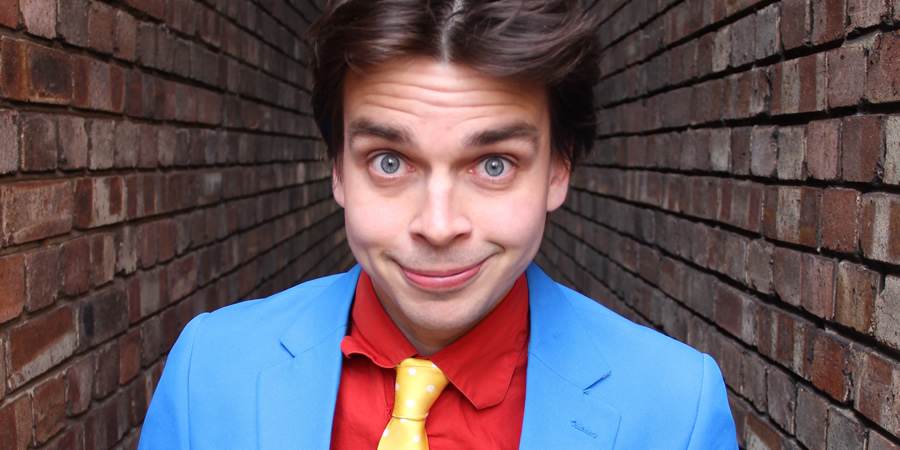
How are you paid?
I make my money project to project.
Every couple of years I tend to do a big commercial job which will help prop me up, and free up some space for me to invest time in creative projects for a while.
Balancing out my incomes in the years where I've done commercial stuff and those where I haven't, I think my average income per year is around £24k.
In a year where I don't do an advert, I'd say about a third of my income comes from Edinburgh and any London transfers of my show, a third from bigger acting or writing jobs, and a third from gigs, festival appearances, smaller projects or random odds-and-ends.
If you could change one thing about the comedy industry, what would it be?
I'd love it if the general attitude of the public at large towards comedy came to be a bit more lenient and discerning. In, say, music or film, the subjectivity of different genres and styles is embedded into the way people consume it. I can't imagine that many people would go out on a Friday to just "see some music", they'd think about what sorts of music they like and then look for anywhere with a good folk night or a good jazz night or whatever. But I think there's an attitude with comedy that stuff should just be funny and that's it, and that if an audience didn't find it funny, it's not just that it wasn't their thing, it's that the thing itself is fundamentally compromised.
I'd love it if there was more space and nuance around the idea that comedy takes loads of different forms, and all of them are equally worthy of respect and time and investment.
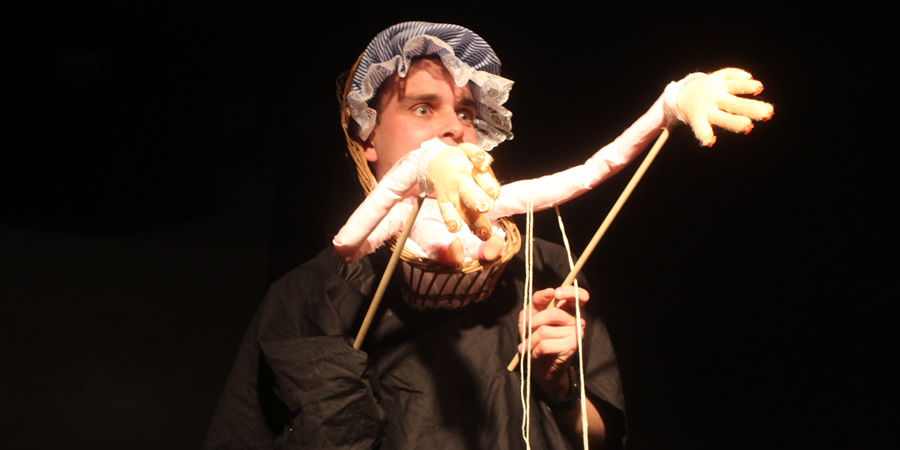
What tips would you give for anyone looking to work in your area of the industry?
I think the most important thing is that you have to be doing it because you know it's what you have to do.
As a job, it's frequently very, very tough on your ego and your self-esteem, so you can't be doing it in pursuit of some sort of external validation or approval, because that won't work. You can only be doing it because it feels like the thing you ought to be doing.
You also have to strike a delicate balance between knowing that your ideas are interesting and valuable and worth exploring, while also knowing that if left to your own devices you won't express them as well as you possibly could, and that the help and support of other people will always help you to make your best possible work.
If you don't believe in the strength of your own ideas to begin with then you'll become completely malleable and end up making work you think other people want you to make rather than doing anything authentic. And if you believe totally in your ability to express your ideas on your own then you'll end up producing work which seems perfect to you, but means nothing to other people, and you won't understand why it seems to be difficult to get anywhere with it. Somewhere in between there's a sweet spot.

